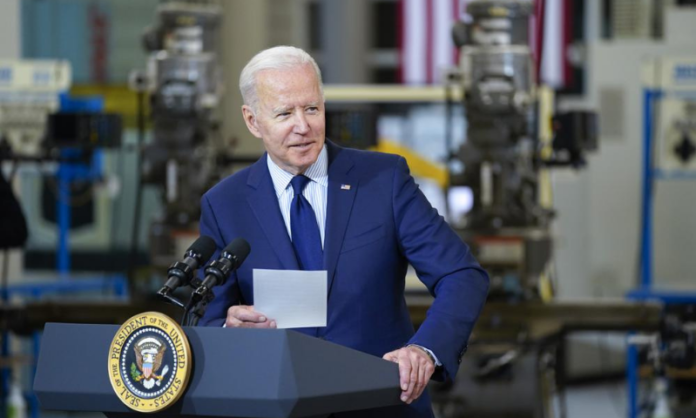Biden Announces $125M Aid
the global stage was once again dominated by the ongoing conflict between Russia and Ukraine, with President Joe Biden’s recent actions underscoring the United States’ continued commitment to supporting Ukraine. In a pivotal development, President Biden held a significant conversation with Ukrainian President Volodymyr Zelenskyy, during which the United States announced $125 million. This decision marks a continuation of the U.S.‘s strategic support for Ukraine amidst the enduring struggle with Russian aggression.
The Context of U.S. Support for Ukraine
Since the onset of the Russian invasion of Ukraine in February 2022, the United States has been a major ally for Ukraine, providing a range of support including military aid, economic assistance, and diplomatic backing. The assistance has come in various forms: lethal aid such as anti-tank missiles and air defense systems, non-lethal aid including medical supplies and humanitarian relief, as well as financial support aimed at stabilizing Ukraine’s economy and bolstering its governmental functions.
The announcement of an additional $125 million in military aid reaffirms this commitment. This new tranche of aid is intended to enhance Ukraine’s defense capabilities as the conflict with Russia continues to evolve. The timing of this announcement is particularly notable given the ongoing challenges faced by Ukrainian forces and the broader geopolitical implications of the war.
Details of the New Aid Package
While specific details of the aid package often emerge in subsequent days or weeks, the general components of such packages typically include advanced weaponry, training, and logistical support. For instance, previous aid packages have included anti-aircraft systems, artillery, and drones. The $125 million is expected to include similar types of equipment, possibly with a focus on areas where Ukraine has identified immediate needs or where U.S. military experts have determined that additional support could significantly impact the battlefield dynamics.
This latest aid package aligns with the U.S.’s broader strategy of not only providing immediate support but also fostering long-term strategic capabilities within the Ukrainian military. The support is aimed at ensuring that Ukraine can sustain its defense efforts and effectively counter the ongoing Russian offensive, which has seen significant ebbs and flows over the past months.
The Biden-Zelenskyy Conversation
The conversation between President Biden and President Zelenskyy is a critical element of this announcement. Such high-level dialogues are essential for several reasons. They help ensure that aid packages are tailored to the actual needs of the Ukrainian military and that the U.S. and Ukraine remain aligned in their strategic objectives. The dialogue also serves as a platform for both leaders to discuss broader aspects of the conflict, including potential diplomatic solutions and the coordination of international support.
In their recent conversation, Biden and Zelenskyy likely addressed the current state of the conflict, the effectiveness of previous aid packages, and the strategic objectives for the immediate future. Such discussions also provide an opportunity for Zelenskyy to express Ukraine’s specific needs and challenges, which can help shape the U.S. response and ensure that aid is utilized effectively.
International Reactions and Implications
The announcement of new U.S. military aid to Ukraine is likely to have several international repercussions. For one, it signals to other allies and partners the U.S.’s sustained commitment to supporting Ukraine. This could encourage other nations to step up their own support or to coordinate more closely with the U.S. and its allies in providing assistance.
Conversely, such a move could also provoke a reaction from Russia, which has consistently viewed Western support for Ukraine as a direct threat to its strategic interests. Russia’s response might include increased military operations or heightened rhetoric aimed at undermining the support network that Ukraine relies on. The geopolitical landscape in Eastern Europe remains fluid, and actions by major powers like the U.S. can significantly influence the direction of the conflict.
Domestic Implications in the U.S.
Domestically, Biden’s decision to approve the new aid package may have several implications. On one hand, it reinforces the administration’s foreign policy stance and demonstrates a commitment to supporting democratic allies under threat. This can be favorable in terms of domestic politics, particularly among voters who support a robust international presence and who view the support for Ukraine as a moral and strategic imperative.
On the other hand, the decision could face criticism from some quarters. There are always domestic concerns about the cost of foreign aid, especially when there are pressing issues at home such as economic challenges, healthcare, and infrastructure needs. Critics may argue about the allocation of funds and whether these resources might be better spent addressing domestic issues. Balancing international commitments with domestic needs remains a complex task for any administration.
Looking Ahead
The continued support for Ukraine from the U.S. and other international partners is likely to play a significant role in the ongoing conflict. The effectiveness of military aid in strengthening Ukraine’s defense capabilities and its ability to sustain resistance against Russian advances will be closely watched. Additionally, the international community will be monitoring how these developments influence the broader geopolitical dynamics and potential pathways to a resolution.
In conclusion, President Biden’s recent conversation with President Zelenskyy and the subsequent approval of $125 million in new military aid to Ukraine underscore the United States’ ongoing commitment to supporting Ukraine in its struggle against Russian aggression. As the conflict progresses, such support will be critical in shaping the military balance and potentially influencing diplomatic efforts toward a resolution. The global community will continue to watch closely as these developments unfold, with significant implications for international relations and regional stability.



































